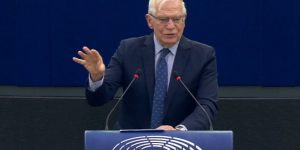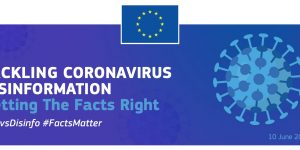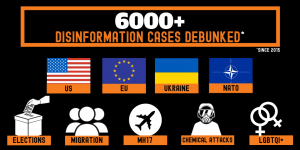With professional journalism struggling for survival and the quality, media literacy is becoming increasingly important skill for all citizens
By: Elvira Jukić-Mujkić
Critical thinking about media content is essential nowadays as information are equally generated and distributed by both the professional journalists and producers of the outright fabrications. In this digital age, it takes no more than some limited funds and skills to run a news portal and spread (dis)information, thus it has become vital for citizens to be able to identify an intention of such content.
Understanding the reasons, some technicalities and styles make the foundation of media literacy, the key skills of the modern times. Examining what we read, watch and hear in media can help us avoid drawing wrong conclusions. In the context of fast and far reaching online information, media literacy is crucial to decide about, for instance, whom to vote, whether to support an initiative or initiate change in one’s local community.
Within the context of media literacy, it is precisely one’s ability to recognise and understand a specific content and use this to make a quality and informed decision, which is of the utmost importance. Whether it is a text, photography, video or any other format used to communicate, understanding the basic form of the information directly impacts the way we process it.
Accordingly, news reports should present informative, impartial and concise information about a certain event or phenomenon. Reports on events significant for a public – unless it is an opinion editorial, a column, or someone’s personal blog – should neither contain subjective comments or personal reflection, nor ask questions or make moral judgments about a particular topic. It may sound trite, but disinformation campaigners do just that: by adding captions, comments, questions and statements, they turn the information into an enticing, intriguing text or video which can convince us to trust a completely new aspect to a story or doubt credibility of professional media.
It is very important to have sufficient knowledge and make a clear distinction between professional media and anonymous portals, just as to understand that there is a great deal of lack of professional among the former. Political interference, speed of reporting, lack of transparency in ownership, inexperienced and incompetent journalists – all these factors leave a mark on ways media work. Another danger of this digital era is just how far-reaching are the effects of the inaccurate reporting, as well as wide open opportunities to abuse media industry and the field of communication in general.
Thus, if we lack understanding of the context in which certain media work (ownership, quality, origin, thoroughness and professionalism of journalism), it is possible that we ourselves participate in creating a distorted picture of the world where corruption flourishes and where it is easy to keep us in the dark.
A purpose of the journalism is to learn, find, analyse and present information on exactly what is happening around us. There are many professional journalists who do just that, but also a significant number of those involved in disinformation.
It is therefore important that we ask ourselves when reading, watching and listening to media content: who is reporting it and why? Who are the sources? Does this text or a video aim to inform me or does it try to change my mind? In what way is it written – is it supported by facts and strong arguments? Are important aspects of this story missing and, if so, why?
Verify, track and compare!
#NeVjerujNaPrvu is a project of the European Union in Bosnia and Herzegovina.
The contents of this article are the sole responsibility of the author and do not necessarily reflect the views of the European Union




